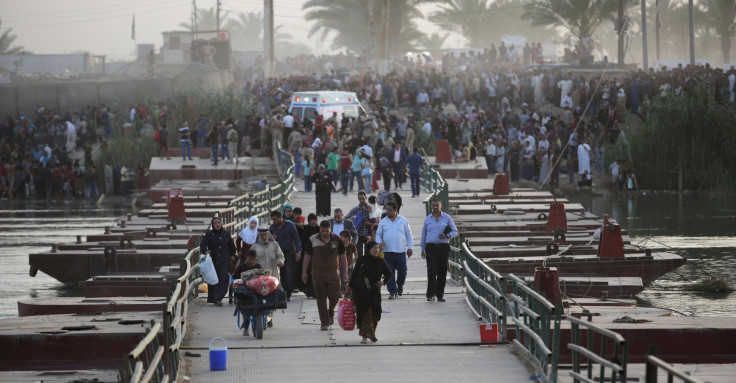What Happened In Ramadi? Sunni Iraqi Deputy Contradicts Shiite Prime Minister Abadi, Echoing Carter And Adding Fuel To The Fire

When a key provincial capital in western Iraq fell to the Islamic State group on May 17, it wasn't because it had roundly beaten the government forces stationed there. Rather, those forces retreated in what was a major surprise move, Iraqi Deputy Prime Minister Saleh al-Mutlaq told CNN Monday, stoking the flames of an ongoing controversy over why Iraq lost the city over a week ago to the militant group also known as ISIS.
"It's not clear for us why such a unit, which was supposed to be trained by the Americans for years, and supposed to be one of the best units in the army, would withdraw from Ramadi in such a way," he said, becoming the latest high-profile official to weigh in on the matter. "This is not the army that we are willing to see or we are expecting to see."
His words closely resembled what U.S. Defense Secretary Ashton Carter said a day earlier. "The Iraqi forces just showed no will to fight," Carter said on CNN. "They vastly outnumbered the opposing force, and yet they failed to fight, they withdrew from the site." He added, "We have an issue with the will of the Iraqis to fight ISIL and defending themselves," using another acronym for the militant group.
Iraqi Prime Minister Haider al-Abadi, meanwhile, told the BBC Monday that Carter was wrong and that in Ramadi, Iraqi forces had faced an "onslaught" from ISIS. He added that Iraq could recapture the city in a matter of days but that it needed more international support. "It makes my heart bleed because we lost Ramadi, but I can assure you we can bring it back soon," he said.
After Ramadi fell to ISIS, Abadi, a Shiite, decided to send Shiite militias backed by Iran to Anbar, the Sunni western province of which Ramadi is the capital. Those fighters, along with troops from the Iraqi army, were inching toward Ramadi Saturday in a counteroffensive to take back the city, Reuters reported.
Prior to ISIS's capture of Ramadi, half-hearted programs to arm and train Sunni fighters in Anbar to fight the militant group failed, the New York Times reported, leaving Sunnis both distrustful of the central government in Baghdad and uncertain of their place in the country.
Mutlaq, a Sunni Muslim, highlighted the Sunni Muslims' concerns in Iraq, saying that the uncertainty of a post-ISIS future created fear among them. "Are they going to live in an area which is going to rebuild again?" he asked. "Are they going to be included in the government?"
© Copyright IBTimes 2024. All rights reserved.






















